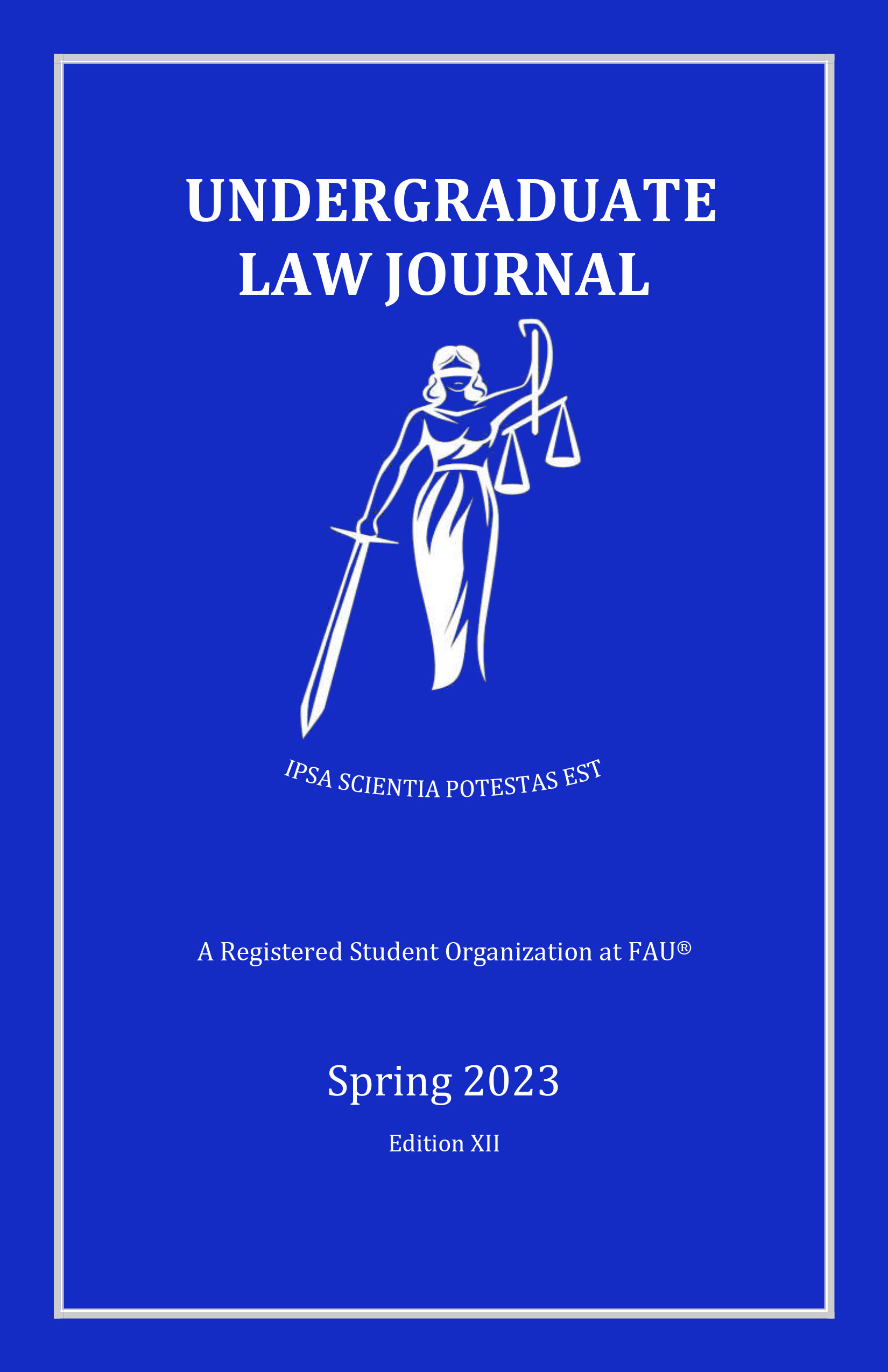A LEGAL ANALYSIS OF CARCERAL CITIZENSHIP AND REENTRY INTO SOCIETY AFTER INCARCERATION
Abstract
Incarceration in the United States continues to grow, and little attention is paid to reentry into society following incarceration. Carceral citizenship is a term that describes how people who have been convicted of a felony are stripped of certain rights constitutional granted to citizens of the United States, solely because they were incarcerated. A goal of the criminal justice system is rehabilitation, with the intention of reintegration into the community. The laws that continue to penalize previously incarcerated citizens make reentry into the community increasingly difficult. Laws restricting people who have been previously incarcerated in areas such as voting, housing, and employment, contribute to the high rates of recidivism, and the lack of reentry initiatives and programs only furthers this issue. Food insecurity, lack of stable housing, lack of access to health care, barriers to education, and barriers to employment, are only a few of the common issues that previously incarcerated people face when reentering the community after incarceration. While the criminal justice system sets consequences for breaking the law in American society, it also seeks to rehabilitate previous offenders. If the criminal justice system aims to rehabilitate offenders, then it is imperative for legal barriers to reentry to be reduced, and government reentry programs must be more productive to truly accomplish this goal.
Downloads
Published
Issue
Section
License
Copyright (c) 2023 FAU Undergraduate Law Journal

This work is licensed under a Creative Commons Attribution-NonCommercial-NoDerivatives 4.0 International License.


